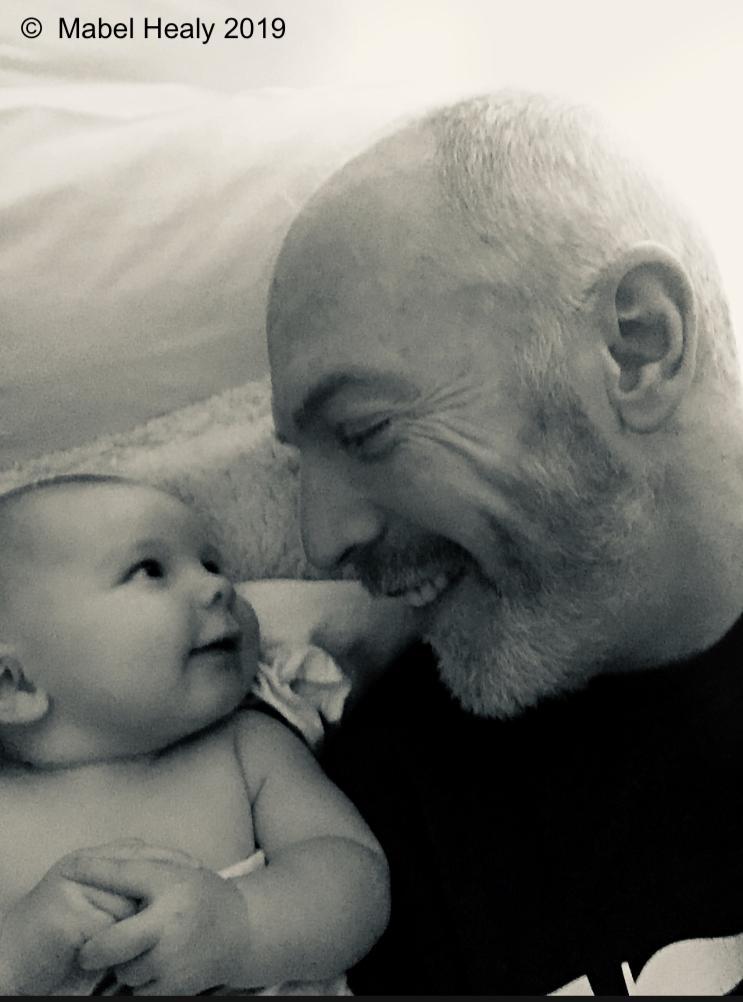“Those who think they know it all have no way of finding out they don’t.”
— Leo Buscaglia
Investors know nothing.
I made the case in a previous blog.
And yet, as a cash-strapped entrepreneur, when you’ve spent months living on the edge, it’s hard not to regard someone who walks through the door with oodles of money as having special insight or wisdom. In fact, at your lowest ebb, it may be tempting to believe that they know more than you about your business or about what your company’s vision should be.
When I was raising equity for Exergyn, a deep-tech company I co-founded, some investors sagely told me: “The value of this company hinges entirely on the strength of its patents.” Others said: “It’s all about whether the technology works.” From others: “The size of the potential market is the key thing here, nothing else matters.” A few told me their decision to invest hung entirely on how much cash I’d personally invested in the company (irrespective of the number of years I’d worked for no salary or for reduced salary).
It didn’t matter that these solemn proclamations sometimes contradicted each other. They came from seemingly successful people wielding money. They must know what they’re talking about, right?
Seeking Businesses With Low Potential
US-based VCs have no interest in companies with a potential market size for their products of less than $1billion. Yet at the opposite pole, we were told that an Irish investor who visited our facility “definitely would have invested” in our company until he was informed that the total potential global market for our products could be worth over a billion dollars! It didn’t matter that the claim was based on clear evidence. Apparently he never invests in any start-up that mentions the word billion in relation to the potential size of its market.
We missed out here on investment of c.€200,000, but ultimately we were glad we never sought to hide the large size of the potential market as it helped us raise €50 million from other sources.
Space Cadet
We had an advisor foisted upon us by a state-owned investor. He frequently tried to persuade us to change our products, our target market and our entire business plan to focus on the space industry. Not the space heating industry, where our heat pumps are needed, but the industry involving satellites, Mars and The Moon! The reason for this, he said, was that we could avail of grants worth up to €100,000.
We resisted the advice and won grants worth several million euro over the following years.
Secrets & Lies
Other entrepreneurs have shared similarly baffling stories with me.
One recalled how a senior executive from a “high profile VC” boasted in their first meeting that “he’d just bought a tech company that supplied tech to Mi6. He’d signed the Official Secrets Act so couldn’t discuss it. Then spent the next hour telling me all about it!!”
A number of entrepreneurs have recounted variations on the story of getting otherwise largely disinterested investors to invest by telling Investor A that Investor B was going to invest, and telling Investor B that Investor A was going to invest.
Filter for Insight & Truth
Not all investors spew nonsense, obviously. Most of our 100+ investors were private individuals who displayed humility and were very open about not being experts in our industry. In those cases, they usually invested on the basis of the personal relationship and trust that had been built up between them and I. The fact that the company was aiming to do something good for the world (reduce carbon emissions and eliminate refrigerants from heat pumps) was a big bonus; and it helped that their investment instrument was structured so that my shares and those of other management would be worth zero until investors received their money back plus a return!
The point I’m making is that if you’re an early-stage entrepreneur, you need to carefully assess all advice coming to you. When you’ve spent a long time being short on funds, it can seem that the cash-laden investor must be much wiser than you. They may have “experts” with them who’ve worked in your industry for years – and it’s easy to believe that their wisdom is all-knowing. But be careful – sometimes the “expert” is akin to a dermatologist commenting on a heart transplant. They may be a doctor, but their area of expertise is way off. A little knowledge is a dangerous thing.
The other thing to remember about so-called experts is that they can be trapped by their knowledge. They may be financially incentivized to maintain the status quo (having investments in similar industries) and are blind to their bias (as we all are). Or perhaps they’re brilliant with facts but have no vision. They didn’t have the foresight to come up with your idea after all.
I had “experts” tell me that if there was anything to shape memory alloy (SMA) and its potential to reduce carbon, then NASA would have done it years ago. (SMA is the material at the heart of Exergyn’s products.)
And Yet…
It’s very important that we don’t dismiss feedback just because we don’t agree with it. We’ve all seen those wannabe singers on X-Factor or similar TV shows who can’t hold a note, yet are convinced that they’ll rock the world. They dismiss all criticism and are often egged on by a family who wrongly believes in their talent.
As an entrepreneur, you absolutely don’t want to be that “bad singer” with friends & family telling you your business is “amazing”. If your business needs to change direction, you have to have a way of receiving timely feedback and making the necessary pivot as soon as possible. And, as I’ve argued in a previous blog, if your business is not going to succeed, the best outcome is that you fail fast.
We all need insightful advice and support. The key here is learning to recognise good from bad advice/advisers. (I’ll discuss more on this in a future blog.)
This need to filter is also true of choosing which investors will fund your company. As one entrepreneur put it to me: “Some investors are amazing, some are just batsh*t.”
The Chaff
The worst investors have some or all of the following characteristics:
- They have a sociopathic zeal about exploiting any opportunity to boost their return – irrespective of its effect on you, your team or the business.
- They’re trying to make a quick buck by exploiting some angle they think you’ve missed (such as loading your company up with debt, or attaching particular conditions to their investment which will likely result in them getting a much bigger share of your company than you expect).
- They think they know more than they do* and try to foist sub-optimal courses of action on your business. (*This is the Dunning-Kruger effect, which can easily befall investors who get used to undue respect because of the money they wield. It can also happen when they’ve had a success previously with a particular course of action and lazily think it should apply elsewhere.)
- They’re unwilling to share a reasonable level of risk with you and your fellow founders – so they are not aligned with you, and their investment comes with so many safety nets for them (and corresponding penalties for you) that you won’t end up with a fair share of the spoils in anything but a momentously successful scenario.
The Wheat
The better investors are not geniuses who know more than you about your business. Often they’re patient and have been through the growth stage with companies many times, so they can point to likely patterns – helping you avoid pitfalls. Ideally, they have networks you can tap into that can save you time and money – be that with professional advisers, suppliers or customers.
They are also enlightened enough to realise that they will succeed most by helping you to succeed. In the investment deal, they won’t squeeze you and your founders ’till the pips squeak’ (which is sometimes possible at the last-minute deal-signing stage, when other investors have moved on). They understand that this is likely to be counter-productive, that management works best when it is not under constant threat and stress, and that you & your founders need to be fairly & generously incentivised. Like the best coaches, they’ll push you, but will do so in an environment of mutual respect, understanding & encouragement.
In the best cases, the investor can end up as a kind of trusted mentor, someone who has a valuable perspective because they know & understand you, because they’re above the everyday fray that can blind you to important issues, and because they have deep experience of a particular issue you are in the midst of tackling. Such a relationship takes time to develop, with trust being earned along the way on both sides.
Don’t Win the Battle and Lose the War
You should try to talk to companies that prospective investors have invested in. Getting a lower valuation from a good investor is likely to work out better for you than securing a high valuation from a bad investor – who could make your life miserable, make it harder for you to achieve success, and have ways of eventually clawing back the “high valuation” as a penalty for missed milestones or a low-valuation exit.
The Visionary is You
Ultimately, when it comes to investors and “experts”, if you’ve researched your market well enough, and if your company’s vision continues to be genuinely challenged by you & by others and it continues to hold, then it’s important to stay as true to that vision as you can.
Yes, you may have to compromise sometimes in order to secure funds that wouldn’t otherwise be secured; and, yes, you must adapt your product or service (and perhaps even the vision) as new evidence arises, but if you ever start believing that others have a better claim on crafting the vision than you, then it may be time to give up your position as CEO.
© Alan Healy





